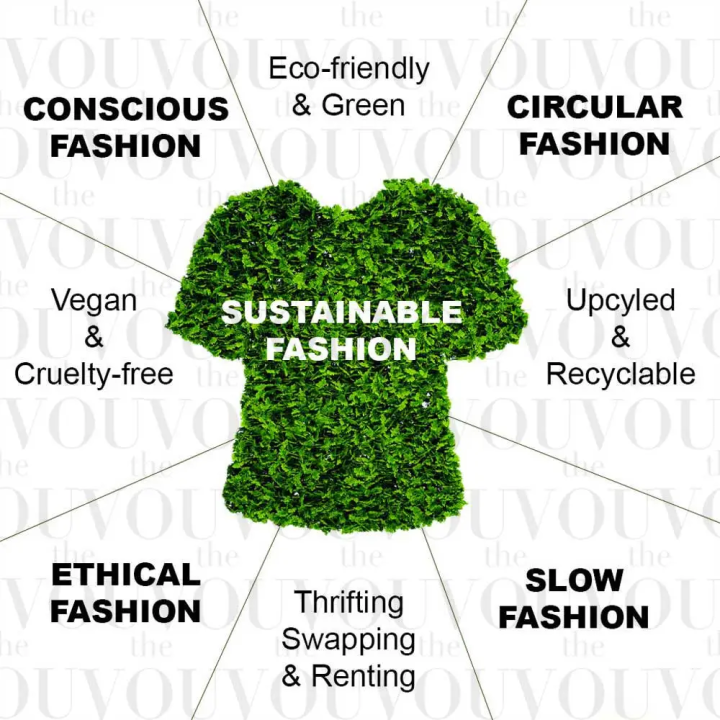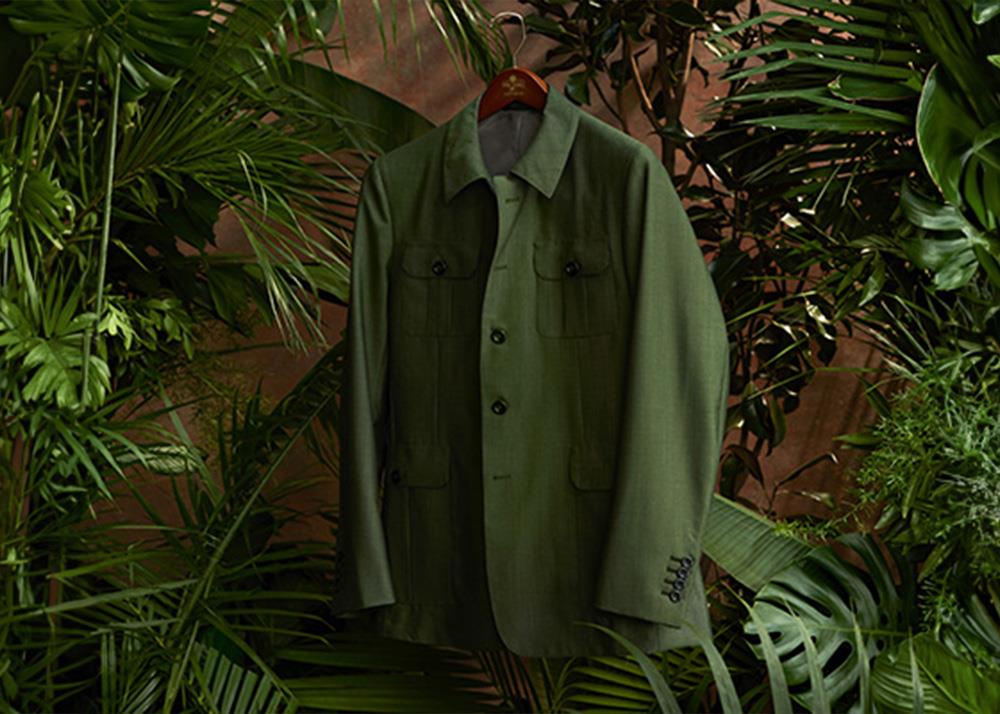Cape Town Sustainable Fashion: Ethical Clothing for a Better Planet
Wiki Article
Stay Ahead of the Curve by Checking Out Ingenious Style Patterns
In an industry as dynamic as style, remaining ahead involves more than just following present patterns-- it requires an expedition of innovation. The convergence of modern technology and fashion advertises a new era of consumer engagement.
Welcoming Smart Textiles
In recent years, the garment industry has seen a transformative change with the combination of smart fabrics, a sophisticated advancement that blends technology with fabric. This evolution stands for not just a fusion of aesthetic appeals and functionality but additionally a substantial jump towards sustainability and personalization in fashion. Smart fabrics, also called e-textiles, installed advanced electronics such as sensing units and conductive strings within the fabric, allowing garments to connect with the wearer or the setting.These textiles are developed to keep track of physical criteria, such as heart rate or body temperature, supplying real-time wellness analytics. Beyond health applications, smart fabrics are also being used for adaptive garments, which can change color or pattern in action to ecological stimuli, thus offering a vibrant style experience.
Furthermore, the development of energy-harvesting textiles that create power from movement or sunlight is leading the way for self-dependent wearable technology. This technology is appealing to eco mindful customers and developers aiming to reduce the ecological impact of style. As research and advancement in this field advancement, wise textiles are anticipated to become increasingly widespread, improving the landscape of modern-day fashion with their multifunctional capabilities.
The Surge of 3D Printing
Revolutionizing the production landscape, 3D printing has actually become a game-changer in the garment industry. This innovative technology has allowed developers to press the borders of creativity, producing detailed and tailored garments that were formerly unthinkable. By leveraging digital style and additive production, 3D printing promotes the production of complicated geometries and patterns, permitting designers to try out new textures and structures.A noteworthy benefit of 3D printing in style is its capacity to generate on-demand, reducing waste and reducing supply requirements. This effectiveness not just enhances production processes but also enables quick prototyping, enabling developers to bring their visions to life in a shorter timeframe. Furthermore, 3D printing sustains modification somewhat unparalleled by traditional methods, providing tailored fits and distinct designs customized to private customer choices.
The surge of 3D printing has likewise equalized style, making it accessible to arising designers who can now fabricate premium pieces without considerable economic investment in typical manufacturing facilities. As technology remains to development, the garment industry is poised to harness the complete potential of 3D printing, checking out new products and strategies that will certainly redefine how fashion is conceived and produced.
Sustainable Style Developments
As the fashion business faces the pushing demand for ecological duty, lasting fashion innovations have arised at the center of transformative adjustment. The growing awareness of environmental impact has fueled a shift in the direction of more eco-conscious techniques and materials. Brands and developers are now prioritizing sustainability, including methods that minimize waste and minimize carbon footprints.One substantial advancement is the rise of round style, which emphasizes recycling and upcycling to extend the lifecycle of garments. This technique not just lowers waste however also encourages customers to adopt a much more mindful technique to garments consumption. Additionally, the use of lasting products, such as organic cotton, hemp, and recycled polyester, has gotten grip. These materials require less water and power during manufacturing, substantially lessening ecological effect.
One more development depends on the fostering of ingenious dyeing techniques that make use of waterless procedures or natural dyes, consequently minimizing the large quantities of water and look at here chemicals traditionally utilized in fabric dyeing. In addition, advancements in biotechnology have led to the production of lab-grown natural leather and fabrics, supplying environmentally friendly and cruelty-free options to standard materials. With these introducing efforts, the style sector is making significant strides towards a much more sustainable future.

Tech-Integrated Apparel
Tech-integrated clothing stands for a revolutionary fusion of fashion and technology, reshaping just how people connect with their garments. This innovative domain is marked by the addition of wise textiles and ingrained electronic components, enhancing both capability and visual allure. From physical fitness trackers installed in sportswear to heated coats regulated via smart device apps, tech-integrated apparel provides consumers unmatched ease and flexibility.Introducing brand names are driving this trend, concentrating on producing garments that respond to environmental stimuli or user commands. For instance, some garments can alter color or pattern in action to temperature changes, while others include biometric sensing units to keep track of health and wellness metrics like heart rate or tension levels. The smooth combination of innovation right into fabrics additionally encompasses environmental sustainability, with efforts to establish self-cleaning textiles or garments that adapt to weather, thus decreasing the need for multiple layers.
Moreover, the advent of wearable technology is not just click over here restricted to clothes however encompasses accessories like watches and eyewear, additional broadening the extent of tech-integrated fashion. As the industry continues to introduce, the capacity for personalization and personalization in garments grows, using consumers one-of-a-kind, tech-enhanced style experiences that accommodate their specific needs and preferences.
Future of Virtual Fashion
In the last few years, the future of digital style has emerged as a transformative pressure within the sector, leveraging developments in electronic modern technology to redefine exactly how fashion is produced, experienced, and taken in. By incorporating augmented truth (AR), online reality (VR), and 3D layout devices, designers can now craft interactive and immersive experiences that go beyond conventional fashion boundaries. Online style permits for the development of garments that exist only in electronic atmospheres, offering unlimited possibilities for technology without the constraints of physical production.This electronic change not just offers possibilities for innovative expression however also addresses sustainability problems inherent in conventional style techniques. Cape Town Sustainable Fashion. By getting rid of the need for physical sources, virtual style decreases waste and lessens carbon impacts. Additionally, the rise of online fashion lines up with the increasing consumer need for distinct and individualized experiences, try this website as virtual garments can be personalized and tailored to individual preferences with simplicity

Final Thought
The apparel industry's future depend on the integration of innovative modern technologies and lasting practices - Cape Town Sustainable Fashion. Smart fabrics and tech-integrated apparel are improving performance, while 3D printing offers chances for personalization and waste reduction. Sustainable fashion, through circular techniques and environmentally friendly products, demonstrates a commitment to ecological stewardship. Moreover, virtual style is poised to redefine consumer interactions. Adjusting to these patterns is necessary for brands looking for to remain competitive and relevant in this rapidly progressing landscape.In current years, the fashion market has actually seen a transformative shift with the assimilation of clever fabrics, a sophisticated development that mixes modern technology with textile.As the style sector grapples with the pressing need for environmental responsibility, sustainable fashion advancements have actually arised at the leading edge of transformative modification.In current years, the future of online style has actually emerged as a transformative force within the market, leveraging improvements in electronic innovation to redefine exactly how fashion is produced, experienced, and taken in. The increase of online fashion aligns with the increasing customer need for personalized and one-of-a-kind experiences, as digital garments can be tailored and customized to private preferences with ease.
The style sector's future lies in the combination of ingenious innovations and sustainable techniques.
Report this wiki page